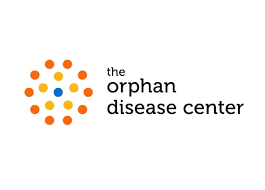Orphan Disease Center
There are presently no open calls for applications.
Mission
The Orphan Disease Center will develop transformative therapies using platform technologies that can be deployed across multiple rare diseases. We will emphasize disorders with substantial unmet need independent of their incidence and will strive to assure access to patients of all populations.
Impact
Each type of orphan disease affects such a small subset of the population, so the need for research and funding in this area is largely unmet. Our Center, the first of its kind, works closely with patient groups and foundations, pharma and biotech, and the academic community. We bring a unique set of programs to the table, enabling us to add value at any stage - from building the initial knowledge base to enabling therapeutic development. Through our grants, Programs of Excellence, International Patient Registries, Jump Start programs, and a number of new initiatives, the ODC seeks to drive therapeutic development for rare diseases. We help identify and fund the most promising therapeutics while also tackling obstacles present in rare disease drug development.
About Our Grantmaking
The ODC offers over 50 grant opportunities in 30+ disease areas annually to researchers across the globe, as well as within the Penn and CHOP community. Since 2011, our grant programs have funded $17.2 million in rare disease research.
